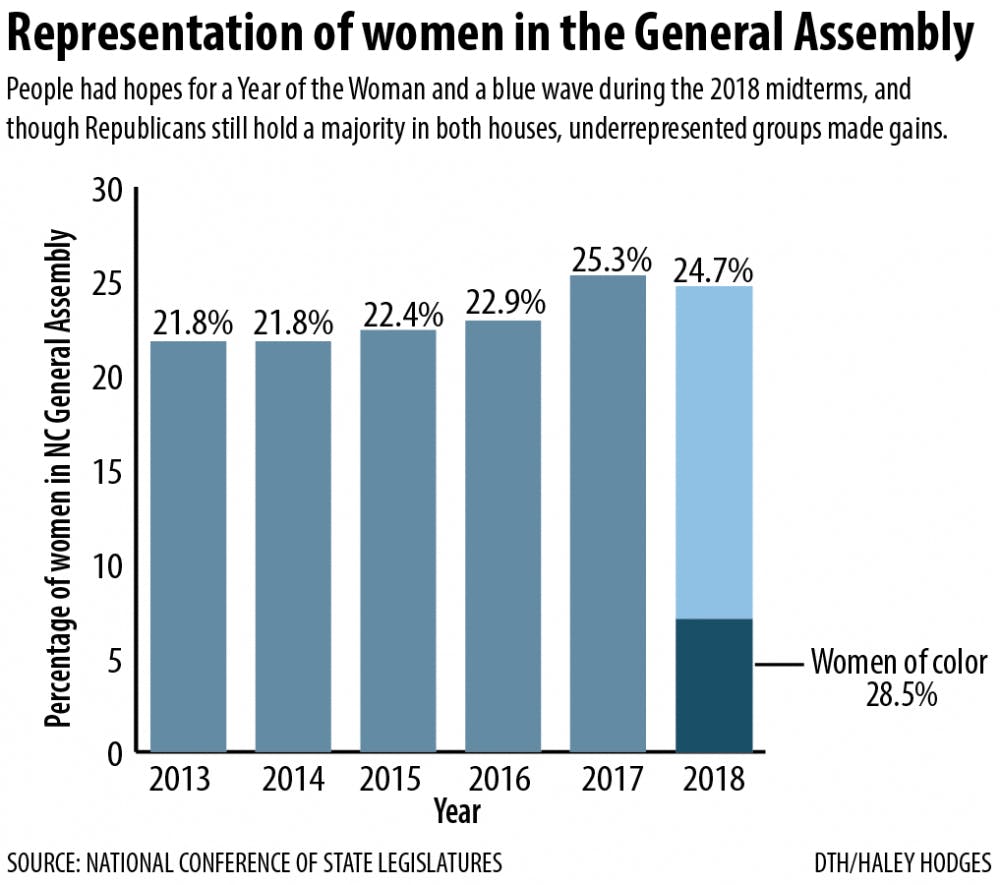North Carolina Democrats broke the Republican supermajority in both the State House and Senate on Nov. 6.
Prior to the most recent midterm elections, a Republican supermajority controlled the General Assembly, which allowed Republicans to override 20 vetoes issued by Democratic Gov. Roy Cooper.
Unlike in Congress where two-thirds of both chambers is required to override a presidential veto, only a three-fifths majority in both chambers is required to override a governor's veto in North Carolina.
While both branches of the General Assembly remain controlled by Republicans, the makeup of the state government has still changed to reflect a wave of diverse candidates being elected, similar to what has happened across the country.
Erin Campagna, an out-of-state student at UNC who voted in North Carolina, said she was very excited about the changing profile of state and national governments.
“I think this change is because of the 18- to 24-year-old demographic," Campagna said. "I really think that the attitude of young people regarding voting has changed. We want more minorities, we don’t just want white men speaking for us. I sincerely hope that the country will continue on the right path with that.”
In the N.C. Senate, candidates Mujtaba Mohammed, D-Mecklenburg, and Natasha Marcus, D-Mecklenburg, were some of those recently elected.
Mohammed, a newcomer to the State Senate and representative for District 38, is a first-generation American born to Indian parents. Mohammed said this experience led him to being a voice for underprivileged people, children and communities of color.
"We didn’t really run our campaign against Donald Trump per se or Republicans per se," he said. "My biggest thing was about running for something, and I truly believe that if you are running for office, you’ve always got to be running for something — not against anyone, not against anything — but you’ve got to be running for something."




